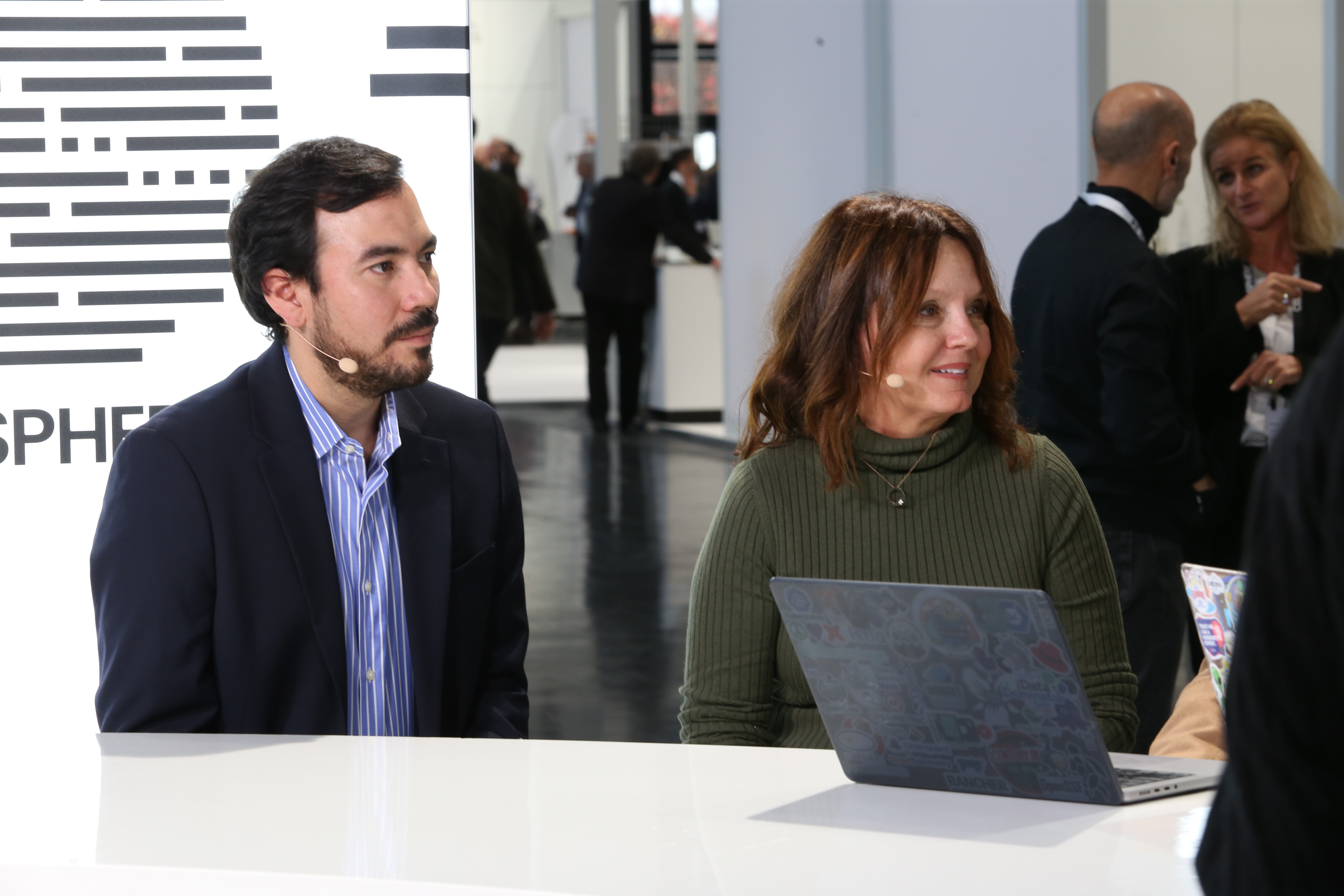 POLICY
POLICY
 POLICY
POLICY
 POLICY
POLICY
At the intersection of academia and technology, a breakthrough is being made in juvenile justice and mental health. Academicians from William and Mary are working on a transformative project that applies process mining to understand the complex interactions within these systems. This project is illuminating key insights and offering potential pathways for tech-driven policy impact, according to Arturo Castellanos Bueso (pictured, left), assistant professor, Raymond A. Mason School of Business, at William & Mary.

William and Mary’s Arturo Castellanos and Monica Chiarini Tremblay discuss tech for public policy.
“We’re working on this particular research on process mining with an NGO in the criminal justice practice system to try to optimize some of the processes and the efficiencies in this system,” Bueso said. “This is both from a research perspective and from a teaching perspective … we are professors in the MS in business analytics.”
Bueso and Monica Chiarini Tremblay (right), Hays T. Watkins Professor of Business at William & Mary, spoke with theCUBE Research’s Savannah Peterson and Rob Strechay at Celosphere 24, during an exclusive broadcast on theCUBE, SiliconANGLE Media’s livestreaming studio. They discussed a tech-driven policy future where process mining techniques are widely adopted in social systems to improve transparency, accountability and outcomes for affected individuals. (* Disclosure below.)
The term “wicked problems” aptly describes the intricate challenges within criminal justice and mental health. Process mining, a method that extracts knowledge from data logs, has revealed an alarming connection between mental health interactions and prolonged juvenile detention. This correlation has shown that those who experience mental health issues often stay in the system ten times longer, facing a higher likelihood of reoffending according to Tremblay.
“Another thing that was almost heartbreaking is how many times it just essentially escalated,” she said. “There were class C misdemeanors, which means they’re not important or hard crimes, but they just have annoyed the local law enforcement. Eventually, it just started escalating, and we had one case where the kid, after 10 years, entered the system at 13. At 23, he’s in prison for possession of marijuana.”
Monica and Arturo’s project, in partnership with the NGO Evident Change, analyzes data spanning both justice and mental health fields to identify gaps and inefficiencies. By using machine learning to combine fragmented datasets, they’re uncovering patterns where system actions—rather than individual behaviors—dictate youth outcomes.
“What happens is that sometimes the reality is that we just have fragmented systems that we think of it as different silos,” Bueso said. “Even just connecting the data coming from all these systems, it’s very hard. Monica just talked about two specific systems, criminal justice and mental health. But there’s no unique ID that identifies the same children in both systems.”
Here’s the complete video interview, part of SiliconANGLE’s and theCUBE Research’s coverage of Celosphere 24:
(* Disclosure: TheCUBE is a paid media partner for Celosphere 24. Neither Celonis SE, the sponsor of theCUBE’s event coverage, nor other sponsors have editorial control over content on theCUBE or SiliconANGLE.)
THANK YOU